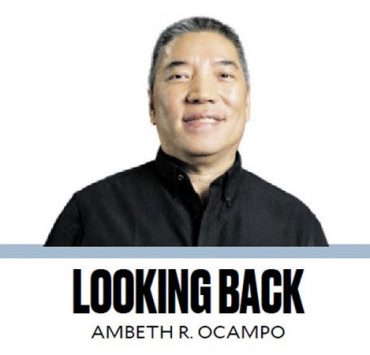Are we ready for AI?

In an age where reality is increasingly malleable, the question must be asked: how much do we really trust what we see and hear?
Artificial intelligence (AI), for all its promises of innovation, has begun to pose a fundamental challenge to something we once took for granted: truth. The rise of deepfakes—AI-generated media that mimics voices, faces, and actions—threatens to upend the very nature of authenticity. What happens when the boundary between fact and fabrication becomes impossible to discern?
In the Philippines, where emotions often run high and relationships are deeply personal, this new reality is not just unsettling—it is outright dangerous. Our culture thrives on trust, on connection, and on shared stories. But deepfakes and AI-generated media do not just distort the story—they rewrite it entirely.
Consider the implications: A video surfaces showing a political candidate saying something outrageous. It goes viral. The outrage grows. The news cycles buzz. But it wasn’t the candidate at all. It was an AI-generated video—flawlessly manipulated to mimic the voice, expression, and very soul of that person. Who is accountable when an entire nation is fooled?
In a world where “viral” is a currency more valuable than truth, the trust we place in the media—the way we process information—is perilously vulnerable. A deepfake isn’t just a clever hoax; it is an assault on reality itself, a chipping away of the very foundation on which our collective knowledge rests.
Deepfakes invade our private lives as well. Imagine getting a voice message that sounds like it’s from your mother, urgently asking for money because she’s in trouble. You respond quickly, without thinking, because you trust what you hear. But it’s not your mother; it’s AI. By the time you realize the deception, the damage is done.
This is the terrifying frontier of AI manipulation: the weaponization of emotion itself. AI has unlocked a dangerous power: the ability to clone the human experience. It can replicate voices, mannerisms, even emotional nuances with startling precision. This ability threatens to destabilize the very trust that binds us as a society. How do we know who’s really speaking to us, or whom we’re really talking to?
When someone speaks to us, we trust them—not just their words, but their humanity. It’s not just a voice we recognize; it’s a connection, a shared history. But what happens when that trust is hijacked? When our loved ones, our leaders, and even our friends are rendered into mere digital echoes, their voices manipulated by algorithms far beyond our control?
It’s not just a technological problem; it’s a cultural one. Deepfakes don’t just distort the facts—they distort our very sense of reality. They challenge what it means to place faith in the media, the government, or our families. In a society where emotional manipulation becomes a weapon used in everything from politics to scams, deepfakes make that manipulation easier, faster, and more potent.
We as a society need to evolve our ability to discern and protect ourselves. Except by the time we catch up, the technology would have evolved again. Because AI is not static and won’t wait for us to enact laws, to regulate, or to develop countermeasures.
So, where do we go from here? It’s clear that as deepfakes and AI-generated media become more commonplace, the battle for truth will intensify. And the Philippines, with its culture of connectedness and high social media usage, must act swiftly to protect its citizens. This requires more than just public awareness—it requires proactive, intentional action at every level of society.
Laws must evolve as quickly as the technology they seek to regulate. This isn’t just about keeping up; it’s about staying ahead of the curve, creating legal frameworks that deal with AI deception and its consequences head-on. Social media platforms must be held accountable for the content they host. They must prioritize the detection of fake content: flag it, verify, and label it as such.
We need to rethink our relationship with digital media altogether. The battle for truth isn’t just fought in courtrooms or tech labs—it’s fought in our homes, in our classrooms, and on our feeds. We need to teach Filipinos not just how to interact with technology, but how to critically assess it.
As AI pushes the boundaries of deception, it’s time to push back—not just with laws or tools, but with our own unshakable commitment to what’s real.
——————
James Kevin Madolid is a passionate writer and communication professional with a deep interest in the intersection of technology, culture, and society.

















